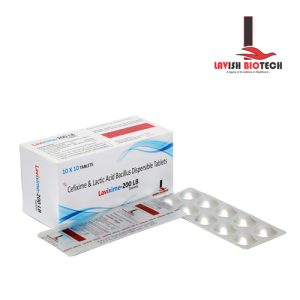CLINDADIN-300
Description
Clindamycin capsules are commonly used to treat a wide range of bacterial infections. These capsules contain clindamycin which is an antibiotic that works by stopping bacteria from growing and spreading in the body. Doctors often recommend it for treating various infections caused by bacteria, such as those affecting the skin, bones, lungs, and internal organs. It is especially helpful when other antibiotics are not effective.
This medicine is packaged in easy-to-swallow capsules, making it convenient for people to take as prescribed. Clindamycin capsules are safe when used under a doctor’s guidance and can help people recover quickly from bacterial infections. By targeting harmful bacteria, these capsules help your body heal and prevent the infection from getting worse. Remember to take this medicine exactly as your doctor advises for the best results.
Uses of Clindamycin Capsules
Here are some common uses of clindamycin capsules:
Skin Infections: Clindamycin Capsules are commonly used to treat acne, boils, and other skin-related bacterial infections.
Bone Infections: These capsules also help manage infections in bones, such as osteomyelitis.
Respiratory Infections: Clindamycin Capsules are effective for lung infections like pneumonia.
Dental Infections: These capsules are also helpful to treat severe tooth infections and abscesses.
Internal Organ Infections: Clindamycin Capsules also help in infections of the abdomen and pelvic area.
How to Take Clindamycin Capsules
Take clindamycin capsules exactly as your doctor tells you. Usually, the capsules are taken with a full glass of water to avoid stomach irritation. It is better to take them at fixed times during the day to keep a consistent level of medicine in your body. Never skip a dose or stop taking the capsules without your doctor’s approval, even if you start feeling better. This ensures the infection is completely cured and prevents bacteria from becoming resistant to the medicine.
Expert Advice For Clindamycin Capsules
- Always try to take the medicine with food or water if the medicine upsets your stomach. Try taking it with a light meal.
- Only use clindamycin when prescribed by a doctor to prevent antibiotic resistance.
- Tell your doctor about any allergies or existing medical conditions before starting this medicine.
- Drink plenty of water while taking this medicine to support your body’s healing process.
- Always finish the full course of treatment, even if you feel better early, to fully eliminate the infection.
What Are The Side Effects of Clindamycin Capsules?
Like all medicines, clindamycin capsules can cause side effects, though not everyone experiences them. Some common side effects include:
- Stomach Upset or Heartburn
- You may feel nausea, vomiting, or diarrhea
- Skin Reactions
- Mild rash or itching can occur in some people
- Some users may experience a burning feeling in the chest
- Mild headaches can sometimes occur
- In rare cases, severe diarrhea
- Allergic reactions like swelling and difficulty breathing may happen
Frequently Asked Questions
Is clindamycin a very strong antibiotic?
Yes, clindamycin is a very strong antibiotic that is broad-based.
Who cannot take clindamycin?
If you have a history of pseudomembranous or ulcerative colitis, then you should not take clindamycin capsules.
Is clindamycin bad for the kidneys?
Taking too much clindamycin can harm your kidneys. Always take the medicine as prescribed.
Is clindamycin safe to use every day?
No, do not use clindamycin daily until prescribed by your doctor.
Additional information
| Pack Size | 10×10 |
|---|---|
| Packing Type | Alu Alu |







